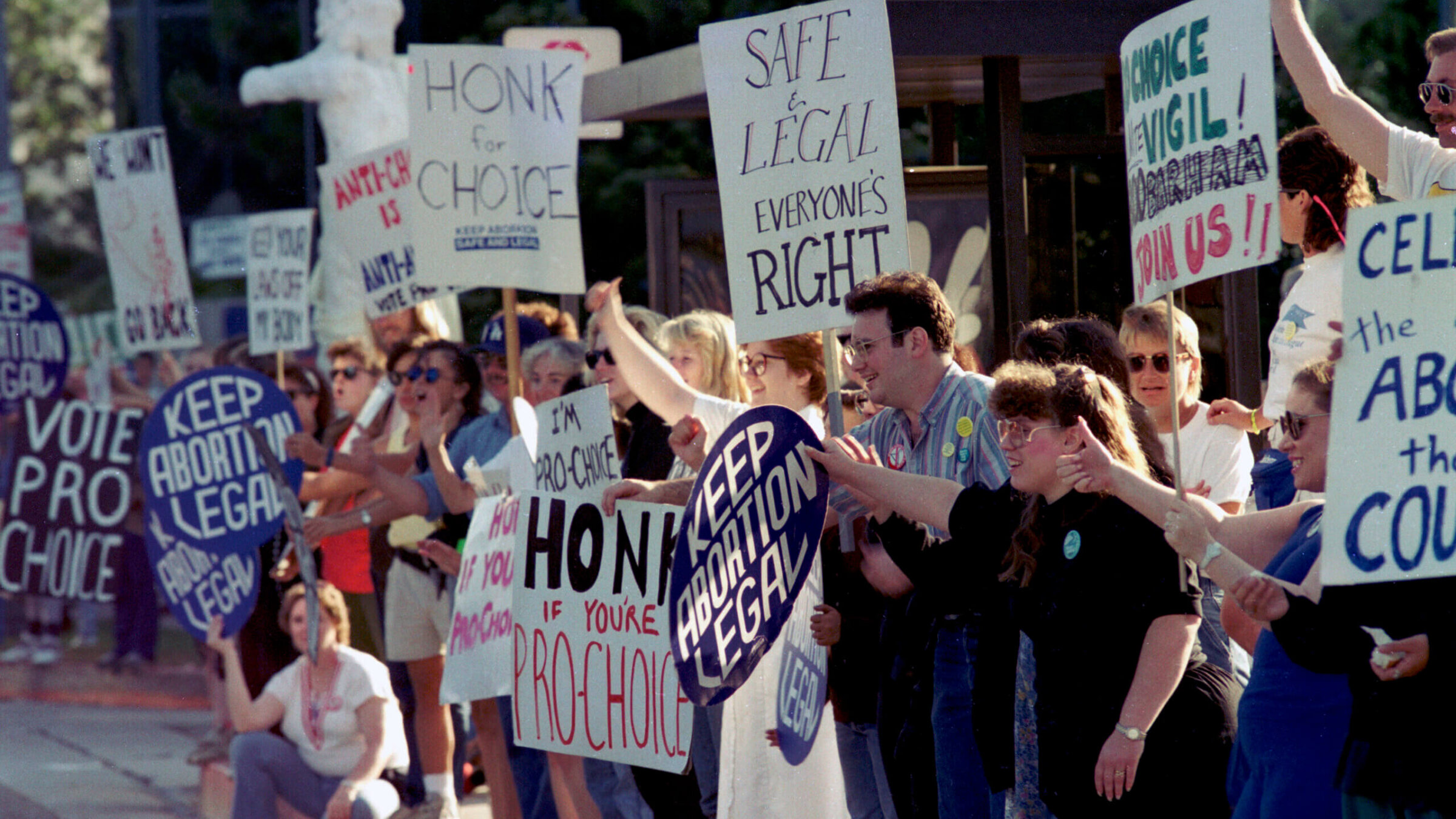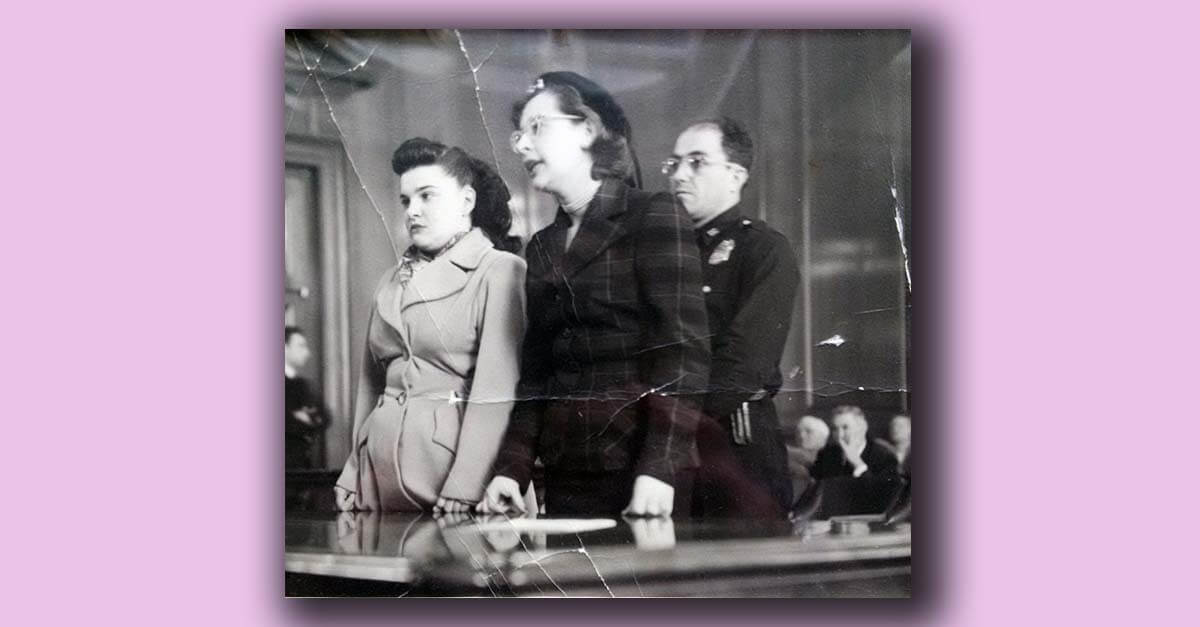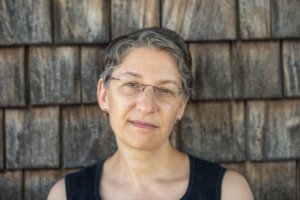On my mother’s deathbed, I learned she was a pioneering reproductive rights activist
The legislation my mother fought for encouraged a wider agenda for reproductive justice than abortion

Pro-Choice supporters displaying signs were joined Attorney Gloria Allred and Norma McCorvey, ‘Jane Roe’ plaintiff from Landmark court case Roe vs. Wade, during a Pro Choice Rally, July 4,1989 in Burbank, California. Photo by Bob Riha, Jr./Getty Images
On the Shabbat evening celebrating my nephew Eli’s bar mitzvah, my mother had a stroke. By early Saturday, she was on life support.
The rabbi and cantor advised us to proceed with the bar mitzvah, arguing that in Jewish law, if a wedding and funeral party meet at a crossroads, the funeral steps aside for the wedding to pass: Joy wins. The future over the past.
Karen, my older sister, leaned across to ask my father a question: “What’s that organization Mom was part of? The one that legalized abortion in New York?” I stared, first at Karen, then at Dad: What were they talking about?
I am a professional historian. I teach and write about women and gender, law, and movements for social change. Was there a professional women’s caucus that worked to legalize abortion in New York?
That conversation spurred me to learn all I could about the abortion law campaign my mother and other activists pursued. I learned that my mother had, indeed, produced the first draft of the law that legalized abortion in her state. Collaborating with other Jewish women, from NOW co-founder Betty Friedan to radical writers Ellen Willis and Shulamith Firestone, as well as non-Jewish leaders like the Black radical Florynce Kennedy, my mother demanded the repeal of all abortion restrictions — no gestational limits, no viability standards, no doctors assessing who was a good or bad candidate for a safe, legal abortion procedure.

I have just finished a six-year project to chronicle the history of reproductive rights and justice, from the early 1960s to today. As I studied the history of how activists like my mother changed the law of abortion, I discovered that many feminists in her era believed that even fully legalizing abortion access would not be enough. This story, too, was a surprisingly Jewish one.
It’s a position that might raise some eyebrows, just as it did then. But as we observe the 50th anniversary of the Roe v. Wade decision and try to make sense of its recent unraveling, American Jews should challenge ourselves to embrace a wider agenda for Reproductive Justice.
A powerful coalition
Even though the state legislature amended my mother’s draft bill, the final law, which went into effect in July 1970, allowed people to choose abortion through 24 weeks of a pregnancy, an astounding victory.
The New York law transformed abortion access throughout the country by specifying that one did not have to be a resident of New York in order to have a legal procedure there. This set the stage for the Supreme Court to act in Roe v. Wade – and to set the end of the second trimester, or roughly the 24th week of a pregnancy, as the point before which states had only limited power to regulate abortion.
Among the first people to critique the feminist movement for focusing on abortion was my family’s across-the-hall neighbor, Dr. Helen Rodríguez-Trías. She was a Puerto Rican physician, and her major foray into activism occurred just after Roe v. Wade.
Dr. Rodríguez-Trías co-founded two groups that critiqued the reproductive rights movement for focusing exclusively on abortion. Demanding legal abortion and birth control, which let people refrain from having children but didn’t enable people to have children and raise them safely, was necessary but insufficient, she argued.
The first of the groups Rodríguez-Trías co-founded, the Committee to End Sterilization Abuse, was a meeting point for Puerto Rican and largely Jewish mainland socialists who mobilized to fight sterilization abuse. At the time, the practice was then rampant in healthcare settings that served low-income and nonwhite women — a form of “population control” related to the pseudo-science of eugenics. CESA members saw sterilization abuse as a violation of reproductive rights that prevented people from choosing to be parents in the most literal, biological way.
The second group was the Committee for Abortion Rights and Against Sterilization Abuse. The membership of CARASA was majority Jewish. As anthropologist Rayna Rapp understood it, a movement that genuinely advocated reproductive rights “wasn’t just going to be about abortion. And it wasn’t just going to be about sterilization abuse. It was going to be about neighborhoods where you could raise children. It was going to be about nutrition,” she told me in 2020, that would lead to healthy pregnancies, as well as playgrounds, safe housing, lesbian family rights, and freedom from police violence.
The goal was to create “conditions that made it safe for people to actually be able to choose to have children, not only to not have children.” This is the heart of what activists mean today when they talk about “Reproductive Justice.”
I honor my mother’s contribution and the legacy of her efforts. I also honor the activism and thinking of our neighbor and her Jewish and non-Jewish allies. On this mostly bitter anniversary of Roe, let’s remember the creativity and tenacity that legalized abortion rights 50 years ago. At the same time, let’s join coalitions led by Black, Latina, and left-of-center activists to build a movement that can win back what we lost when the Supreme Court overturned Roe — and can make the dream of Reproductive Justice from the past a reality in the present.
To contact the author, email [email protected]















